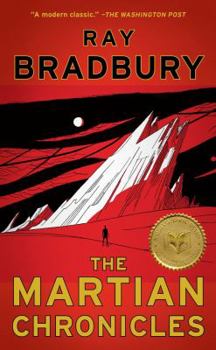Book Overview
The Martian Chronicles , a seminal work in Ray Bradbury's career, whose extraordinary power and imagination remain undimmed by time's passage, is available from Simon & Schuster for the first time. In The Martian Chronicles, Ray Bradbury, America's preeminent storyteller, imagines a place of hope, dreams, and metaphor-- of crystal pillars and fossil seas--where a fine dust settles on the great empty cities of a vanished, devastated civilization. Earthmen...
Customer Reviews
Bradbury VS Asimov
Brilliant...a must read for not only sci-fi fans but those..
Best Science Fiction Book of All Time
A Masterpiece
Great Ironic Social Criticism in Science Fantasy Form
The Martian Chronicles Mentions in Our Blog

From Queen Elizabeth's passing to the reunion of Bennifer, it's been a year full of big stories. As a fun twist on the New Year's tradition of a retrospective on the events of the previous twelve months, we have gathered a collection of nine classic books that sum up 2022.

We can't go to any actual beer fests this year, but we can imagine the ideal scene. And, of course, it would be filled with some of our favorite beer-loving authors from history. While we're at it, let’s throw in a few of their iconic characters. Join us on fantasy dates with five authors who found inspiration while imbibing.

On the eve of what would have been Ray Bradbury's 99th birthday, we celebrate the prolific author who passed away in 2012. A largely self-educated man, Bradbury wrote more than 30 books and close to 600 short stories.







